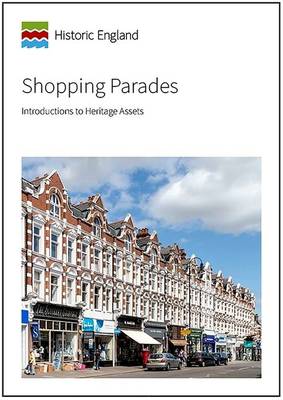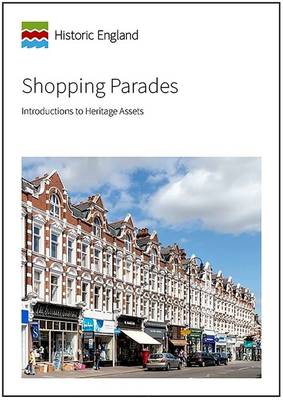
- Retrait gratuit dans votre magasin Club
- 7.000.000 titres dans notre catalogue
- Payer en toute sécurité
- Toujours un magasin près de chez vous
- Retrait gratuit dans votre magasin Club
- 7.000.0000 titres dans notre catalogue
- Payer en toute sécurité
- Toujours un magasin près de chez vous
Description
Shopping parades are purpose-built rows of shops, often with generous residential accommodation above. They were built in large numbers, and with increasing architectural elaboration, from the mid-nineteenth century. Parades often comprised the commercial centre of suburban and dormitory communities, but were built on main thoroughfares, close to railway stations or tram or omnibus termini, where they might attract passing traffic as well as local shoppers. From the 1880s parades adopted a plethora of historicist styles: neo-Tudor, neo-Baroque, Queen Anne and a restrained neo-Georgian. The last predominated in the inter-war years, which might be regarded as the heyday of the shopping parade.
Spécifications
Parties prenantes
- Auteur(s) :
- Editeur:
Contenu
- Nombre de pages :
- 28
- Langue:
- Anglais
- Collection :
Caractéristiques
- EAN:
- 9781848024007
- Date de parution :
- 26-04-16
- Format:
- Livre broché
- Format numérique:
- Trade paperback (VS)
- Dimensions :
- 210 mm x 297 mm

Les avis
Nous publions uniquement les avis qui respectent les conditions requises. Consultez nos conditions pour les avis.






